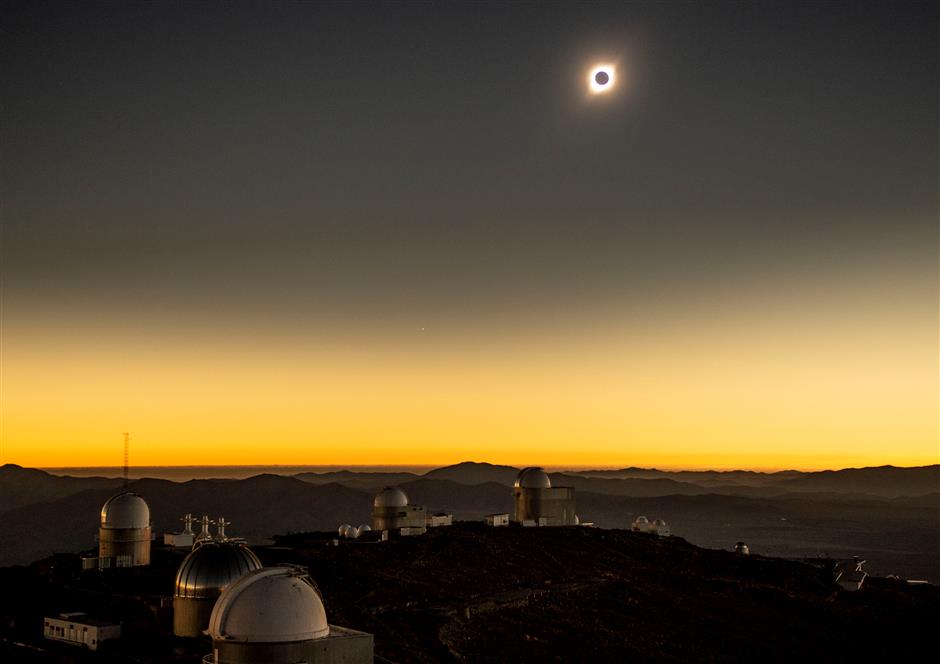Chile, Argentina enjoy thrill of eclipse

Solar eclipse seen from the La Silla European Southern Observatory in La Higuera, Chile, on Tuesday (local time).

Tens of thousands of tourists and locals gaped skyward on Tuesday (local time) as a total eclipse of the sun darkened the heavens over Chile and Argentina.
Tourists from around the world gathered to witness the cosmic spectacle, which began in the morning as the moon crossed in front of the sun and cast a shadow that passed over a tiny uninhabited atoll in the South Pacific and headed to South America.
Chile and Argentina were the only inhabited places where the total eclipse could be seen.
The eclipse made its first landfall in Chile at 3:22pm in La Serena, a city of some 200,000 people where the arrival of more than 300,000 visitors forced the local water company to increase output and service gas stations to store extra fuel. Police and health services were also reinforced.
“Oh! Oh! Oh!” thousands of spectators shouted as they jumped and danced without taking their eyes off the sky. After a brief moment of silence, the yelling returned as the sun’s rays began reaching Earth again.
Others shouted “Long live, Chile!” a chant used at sporting events. In northern Chile, meteorologists measured a 3-degree Centigrade drop in temperature and in the center a 2-degree drop.

Visitors from around the world gathered to witness the cosmic spectacle, which began in the morning as the moon crossed in front of the sun and cast a shadow that passed over a tiny uninhabited atoll in the South Pacific and headed to Chile and Argentina.
“Today Chile is the world capital of astronomy,” said Chilean President Sebastian Pinera, alluding to the dozens of giant observatories in the country, which amount to about half the world’s telescopic capacity. “We are the eyes and senses of humanity to be able to look, observe and study the stars and the universe.”
In the Argentine town of Chascomus, dozens braved near-freezing temperatures and strong winds and claimed a spot at a pier in a lagoon, hoping to catch a glimpse of the eclipse.
“I’ve been looking at the sky since my youth. My first telescope when I was a kid was made out of cardboard,” said Ricardo Rumie, a 68-year-old veteran eclipse-watcher, who set up his camera with a tripod and a telescope with a sun filter along the banks of the lagoon.
“I’ve seen other eclipses but never like this one. I just couldn’t miss it. For me it’s something supreme.”
Yoga teacher Cecilia Magnicaballi searched for the best spot to watch the eclipse with a green mat under her arm.
“This is about taking out the darkness, letting the sun, the light come in,” she said.
Some rushed to buy the cardboard-framed protective eyeglasses at the last minute.
“This is something that they say won’t repeat itself for like 300 years, so we wanted to bring our son,” said Maximiliano Giannobile, who arrived at the pier with 18-month-old Vitto wrapped in a puffy jacket and several layers of clothes.
A solar eclipse occurs when the moon passes between the Earth and the sun and scores a bull’s-eye by completely blocking out the sunlight.















